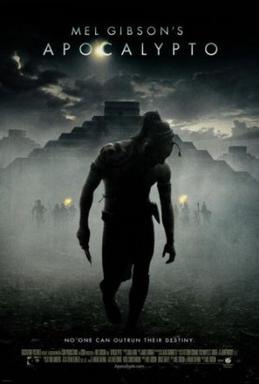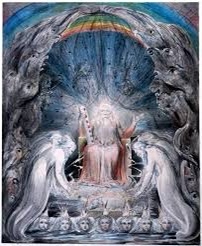When your hear or see the word, “apocalypse”, what comes to mind? Growing up in American movie entertainment, the term presents an entire genre of films based around the end of the world. A mega-hit that immediately arises, with a term often synonymous in our culture, is “Armageddon.” In that Bruce Willis classic, a meteor is on a head-on collision course with Earth, and it’s up to a few astronaut heroes to save mankind from this impact. Yeah, Hollywood for sure!! LOL.

Along with that film, others come to mind, such as “Apocalypto”, a Mel Gibson film imposing an idea on the extinction of the Mayans. More titles pushing the western “apocalypse”, and post-apocalyptic imagery would be Pandemic, Mad Max, Resident Evil, Independence Day, Justice League, Hunger Games, Terminator, Divergent, Planet of the Apes, World War Z, and many more. It’s an obviously popular narrative in our society, likely stemming from the doom-and-gloom literalism taught in churches about the Book of Revelation. Whether rooted in a natural cataclysm, viral outbreak, alien invasion, nuclear fall-out, zombies, or a host of other sci-fi possibilities, it is easy to see the cultural view of the word “apocalypse” is rooted in an utter alteration of the world’s way of life, or the extreme eradication of human life altogether. In church, because of this current world view of the term, people think of the Book of Revelation as being about the “end of the world.” In a sense, that is somewhat true, but that is only relevant in the Day of the Lord, or the “eschaton.”. But do you know where the word “apocalypse” comes from, and what its definition really is? Would you be surprised to learn that it has absolutely NOTHING to do with the destruction of, or end of anything? Guess what? It doesn’t mean any of that at all. So what is this word, “apocalypse?”

What is an apocalypse? Where does the word originate? And how did we come to so utterly confuse its meaning in modern culture? Well, the term is a Greek word, transliterated in English. In other words, we pronounce it in English the way the Greek pronunciation is. (ἀποκάλυψις apokalypsis) To define its meaning in the original Greek, let’s do so with a word picture. Imagine you are watching The Price is Right. The 3 or 4 contestants have just done the spin-down round to decide which of them gets to play the game. Sue is our next contestant. Bob Barker (or Drew Carey, depending on your age) has presented her a showroom of prizes that she has the possibility of winning. There’s a toaster, a vacation package to Fiji, a lifetime supply of Hostess Twinkies, and a new Honda scooter. But Sue’s attention is now drawn to another opening curtain where there is an obvious automobile under a tarp. She knows it is a new car, as the Host charimatically states, “IT’S A NEWWWWW CARRRRR!!!”, but she has no way of knowing what car exactly. So what does this have to do with an apocalypse, Chris? Wait for it!! WAIT FOR IT!!! The shows bikini-clad blonde has ahold of the tarp and is about to apocalypse the type of car that is hidden. Did you catch that? She is about to reveal, or bring about the REVELATION of the identity of that car that Sue is anxious to see and win. So….to “apocalypse” means to reveal something, or make it known? That’s it. Sorry, no annihilation of mankind here! Bummer, huh? LOL.

So when you see “The Revelation of Jesus Christ” as the title of the final book in your Bible, it is actually saying “The Apocalypse of Jesus Christ.” It is not talking about mayhem and desolation coming to the earth. It is merely saying that through this vision of John, God has revealed that Jesus Christ is Yahweh, the Father of Abraham, Isaac, and Jacob. He is the Ancient of Days portrayed in the visionary imagery, denoting Him to have white hair like wool and eyes of fire, etc. Does He actually look like that? No. It is metaphorical imagery used in biblical narratives to declare His identity as Yahweh.
So how have we convoluted this simple term so badly in modern culture? In the same way that modern Christianity has utterly made a mess of the entire Biblical narrative: through ignorance wrought in arrogance. There are millions claiming to be called of God to preach for Christ, yet have never even known the contextual teaching of Christ, nor any book of the Bible for that matter. All one has to do to see the term apocalypse, and its definition, is to actually look it up. And in the same way, seek to understand the biblical background for all things in our Bible, rightly understanding the historical world to which it was spoken, and the context to which it was addressing, and THEIR language definitions of the words THEY used. Doing that would expose 99% of what is heralded in churches as “the Word of God” as lies and deception. But that would take humility, the fear of the Lord, and true discipleship. It’s much easier to make it all about the people, fluffing their narcissistic egos, and promising them an easy path to eternal life. People will get behind that message, give money to building beautiful towers (temples) in God’s name, and providing the Pharisees of their day a squishy fat income and social status among their peers. If they do it well enough, they may even be invited on the premier “Christian” TV stations with the most popular false preachers of the modern church Beast system!!
A likely probability in the confusion of this term, “apocalypse”, and even “armageddon”, in our day would be in the tactics of Hell and the Enemy of our soul. Twisted words and terms are at the height of his skillset. Ignorance of men is his delight. He loves nothing more than people claiming to love Jesus, yet having no understanding or desire of the Word of God. Remember the garden in Eden? “Has God really said that if you eat of this tree, you will surely die?” He went to and deceived the ignorant one, who didn’t know God’s word for herself. Are you safe from deception by knowing it for yourself?